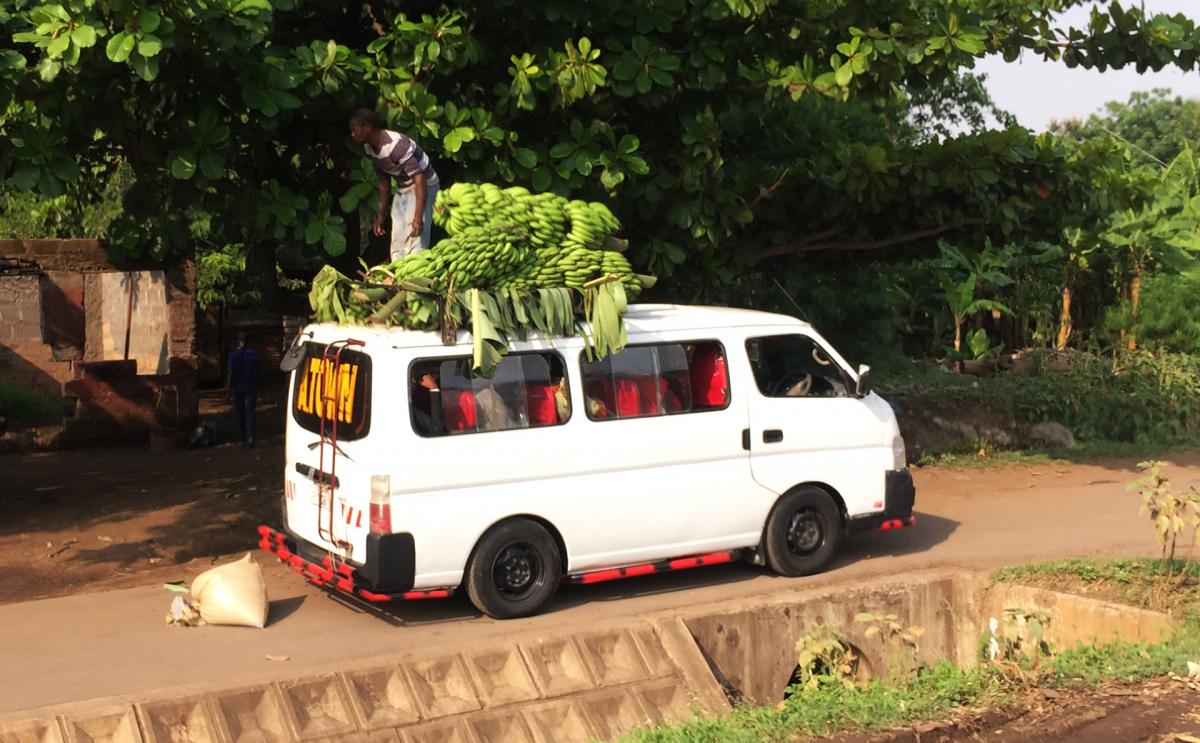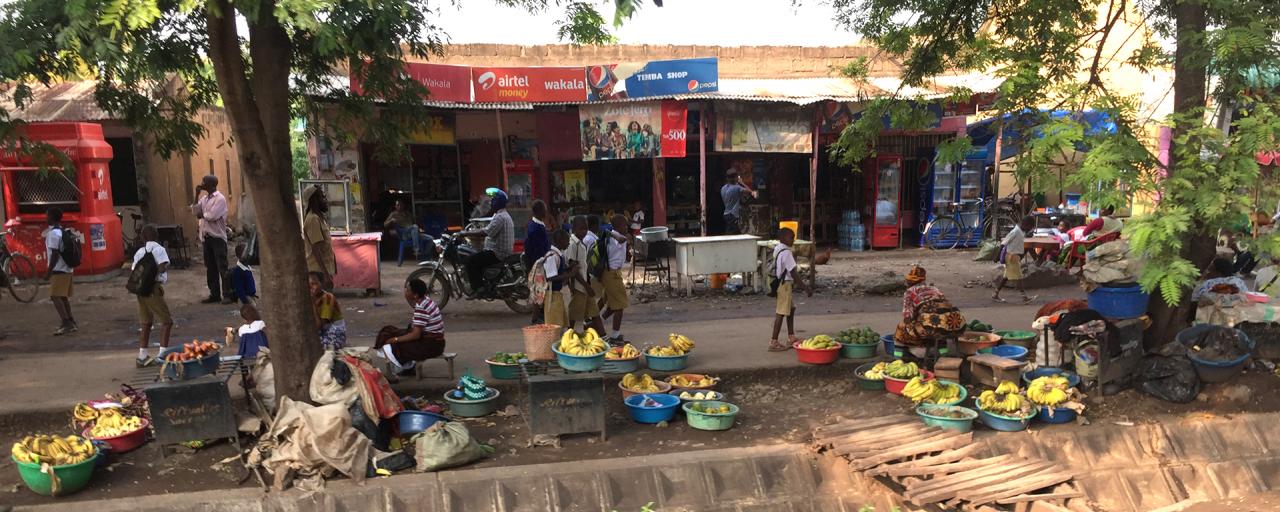Submitted by SafariADV on Sun, 2018-02-25
Today we visited the town of Mto Wa Mbu, it is one of the most interesting places to visit, if you want to find out more about how the population of Tanzania lives.
The area of Mto Wa Mbu is very fertile, because here there is water all year long, thanks to the river with the same name Mto Wa Mbu; therefore in this area, in the past, the cultivation of land was encouraged by the state, with the consequent migration of many people belonging to different tribes, about 120, who still live in this town.
Here are rice fields and above all banana plantations; perhaps not everyone knows it, but there are several types of bananas and here in Mto Wa Mbu they grow different types: yellow, green and red bananas.
The yellow bananas and the red bananas are fruits that are eaten raw, as they are picked ripe from the plant; while green bananas, or matoke, cannot be eaten raw, but must be cooked, they can be grilled, stewed, fried in the form of chips and in many other ways, they are very good and we like them a lot.
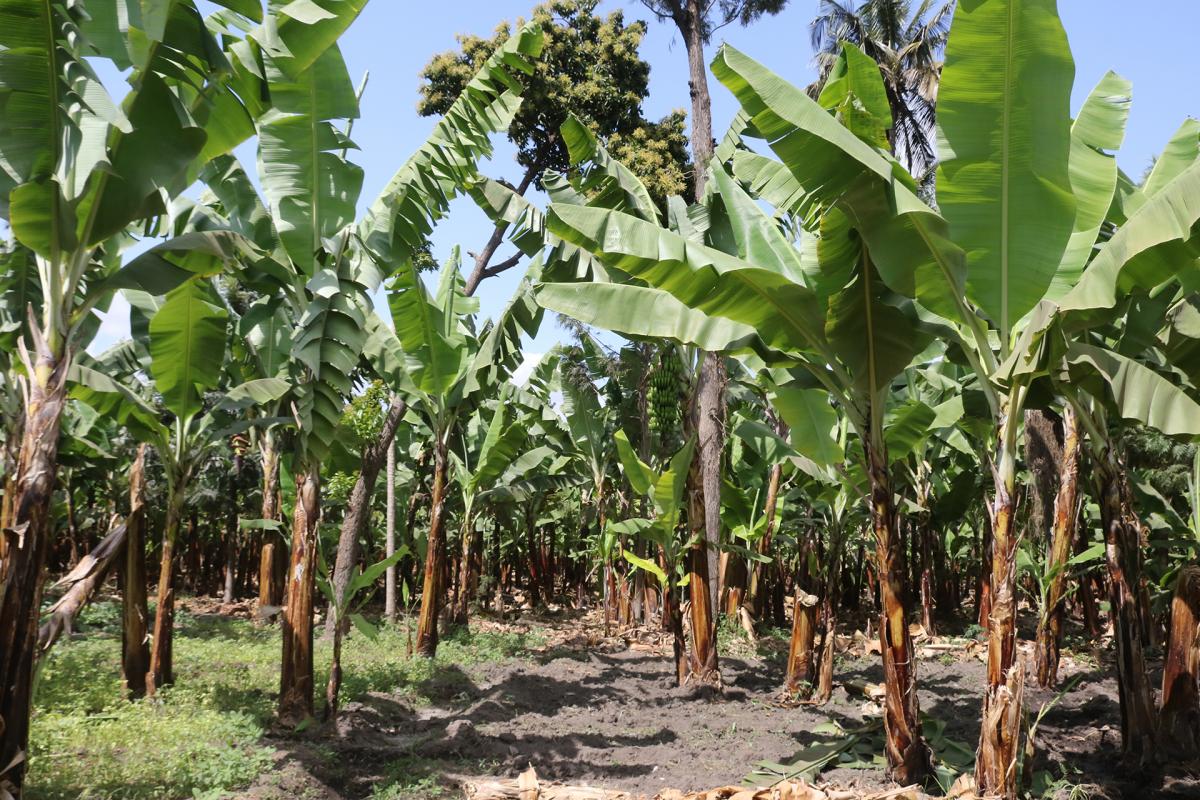
Our visit of Mto Wa Mbu starts from a banana plantation, we venture on foot among the banana trees and a local boy tells us many interesting things about the cultivation of these fruits; some plants have flowers, that are very beautiful, while others have bunches of bananas at different levels of development.
A bunch of bananas can weigh between 30 and 50 kg and the collectors, after cutting the bunch from the plant with a machete, carry it on their shoulders; it is certainly not a light work.
Not far from the plantation we visited there is a laboratory where some men are carving wood; they belong to the Makonde ethnic group, a population, originally from Mozambique, who traditionally carve statues and wooden masks.
We watch them work, they are really good and they are happy if we take photographs of them; nearby, under a tent, some of their works are on display, some statues are true pieces of art.
From there we went to see some painters who paint using the tingatinga technique, that is native to Tanzania; they are paintings characterized by bright colors and with very beautiful stylized subjects, watching them brings joy.
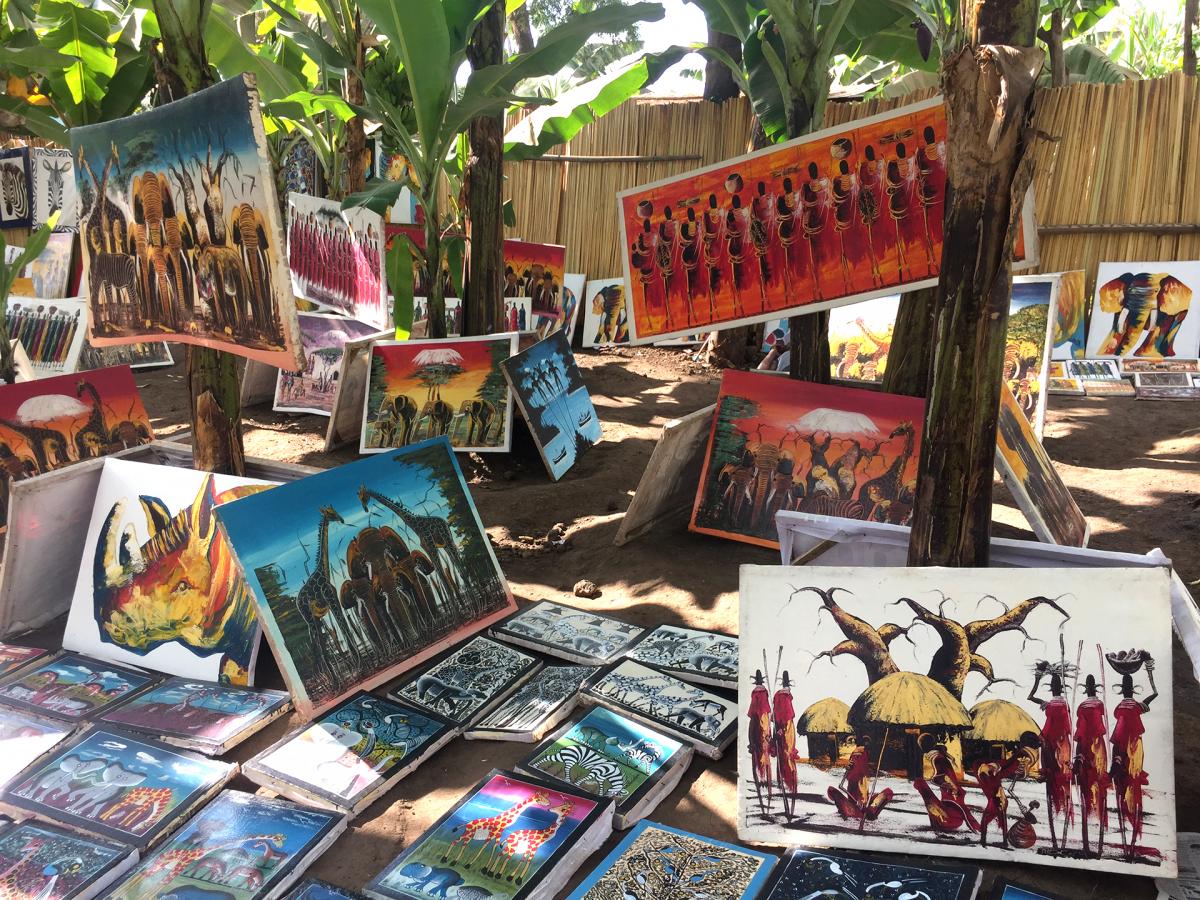
The guys who paint are proud that we are interested in their work and show us how they do their work, contrary to what we thought, they do not make any pressure to buy the paintings, as it unfortunately often happens during such visits, and this pleases us a lot.
At lunch we go to the home of a family who lives near the banana plantations, they prepared a traditional Tanzanian lunch with different courses: ugali, matoke stew, sukuma wiki, pilau, beef stew, makande, rice, grilled bananas and then, we could not miss as fruit, yellow and red bananas.
It was fun to have lunch with this family, there was a mutual desire to chat and get to know each other; they were very welcoming and pleased to see that we enjoyed their food, in fact we really like the local cuisine and, being there with them, we were very pleased.
After lunch, we said goodbye to the family and went a short distance, where they let us taste the banana beer; in many parts of Africa, as in Tanzania, Kenya and Uganda, it is very widespread.
It is produced by hand and the process is not very complicated: the bananas are taken, left to mature for several days, then the peel is removed and the pulp is filtered and diluted with water, then yeast is added to this mixture to help the fermentation .
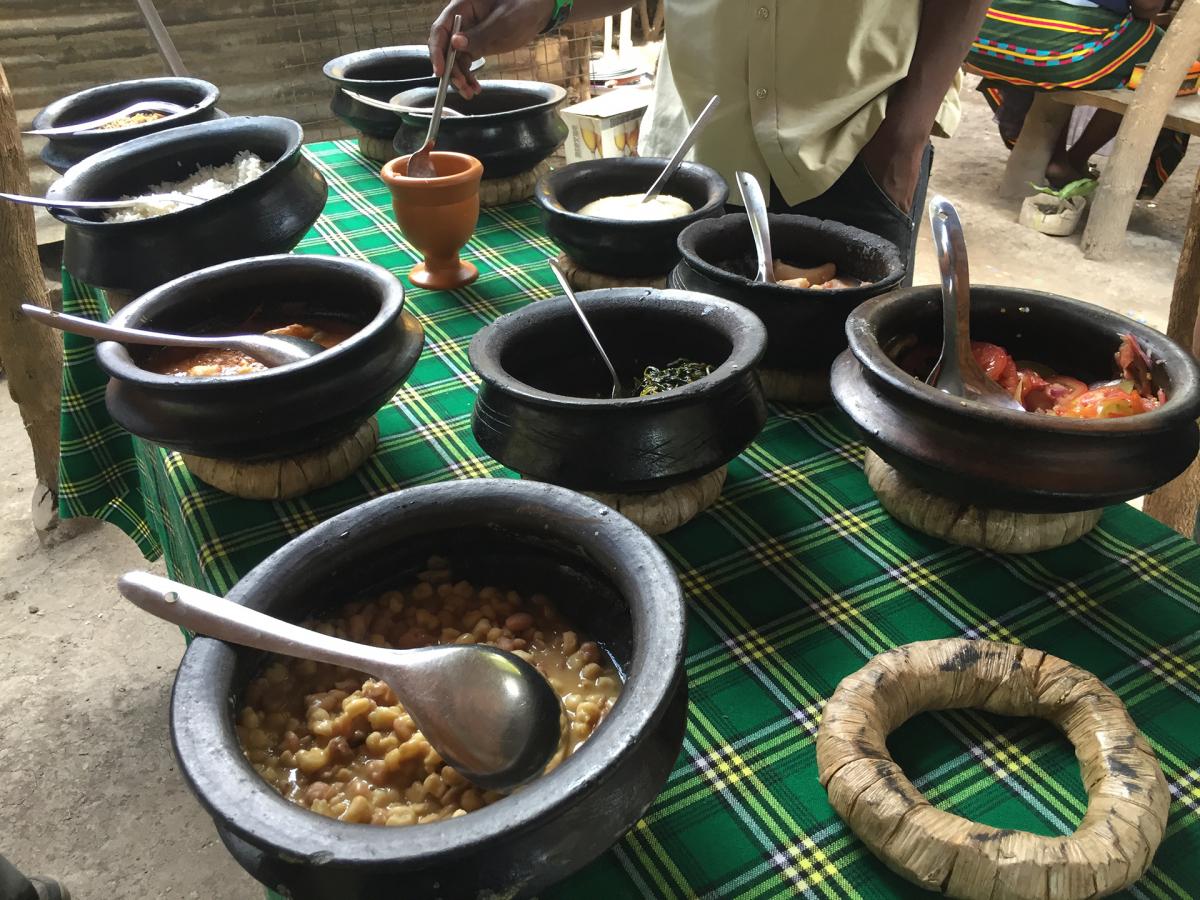
Banana beer is not banana-flavored, but resembles a slightly sour beer; I liked it, maybe cold from the fridge would have been better.
From here we crossed the main road, that goes through Mto Wa Mbu and connects the city of Arusha to the Ngorongoro Conservation Area, and we went to the market.
We love to visit the markets around the world because they are a way to find out how the local population lives; we walk around the stalls of fruit and vegetables, we pass next to a butcher who has the pieces of meat hanging from a sort of window open on the street; we take some pictures, trying not to frame the people who, often, do not like being immortalized.
After visiting the market we take a tuk-tuk for a ride around the city and return to our car.
Before getting back in the car, we stop at a local bar with our guide, the Double M Lounge; there are no foreigners, all the customers are local, some drink a beer, others eat local dishes, that are cooked in the kitchen that can be seen next to the place.
We like being here, this is also part of discovering and learning about a country.
We return to our tented camp, we relax on our veranda, drinking a Serengeti, a Tanzanian beer, tonight is our last evening in Tanzania and, having to pack to leave gives us a bit of sadness; we do not want to go back to our Milanese life, we feel that this life belongs to us more.
